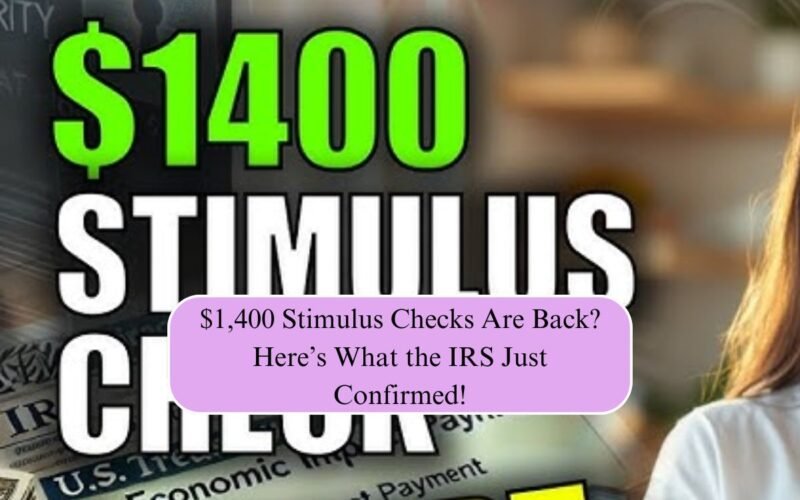There’s been a flurry of headlines and social-media posts claiming that the IRS is issuing new $1,400 stimulus checks to millions of Americans. While it’s true that some payments of up to $1,400 are being sent, the reality is more limited — and important to understand to avoid disappointment or potential scams. This article breaks down what’s really happening, what the IRS has officially confirmed, and what you need to do if you think you may be eligible.
What’s Actually Going On?
The $1,400 amount corresponds to the third round of federal “Economic Impact Payments” (EIPs) authorized under the American Rescue Plan Act of 2021, which provided up to $1,400 per eligible individual. According to the IRS, most of those payments have already been issued.
In December 2024, the IRS announced that it would automatically send “special payments” of up to $1,400 to about 1 million taxpayers who did not claim the 2021 Recovery Rebate Credit when filing their 2021 tax return. These payments were expected to total approximately $2.4 billion.
Key Points: What the IRS Has Confirmed
- The automatic payments mentioned above are not a new stimulus program, but rather a follow-up to the 2021 pandemic-era payments for those who missed claiming their credit.
- As of mid-2025, the IRS has stated that no new federal stimulus checks have been authorized by Congress.
- These payments apply only to taxpayers who met specific eligibility conditions under the 2021 law — including income thresholds, filing status, and having not already claimed the credit.
Why Some People Are Seeing Deposits or Checks
If you receive a payment up to $1,400 and believe you were eligible under the 2021 program but didn’t claim the credit, this could explain it. The IRS is using data-matching to identify cases where taxpayers did not claim the Recovery Rebate Credit and is issuing the payment automatically.
What You Should Do If You Think You’re Eligible
- Check your filing status for the 2021 tax year. Did you file? Did you claim the Recovery Rebate Credit?
- Log in to your IRS Online Account or use the IRS tools to check whether you have a payment on record for the EIP or credit.
- If you did not file for 2021 and believe you were eligible, you may still file your 2021 return by the April 15, 2025 deadline to claim the credit.
- Be cautious of scams. If anyone contacts you claiming you’ll receive additional stimulus checks outside this limited program — especially asking for fees upfront or personal banking information — this is likely a scam. The IRS will not ask for payment or PINs to release money.
Bottom Line
While the sound of “$1,400 stimulus checks are back” is enticing, the reality is more nuanced. A limited group of taxpayers who missed a past credit are receiving payments up to $1,400 as part of a follow-up effort. There is no broad new stimulus program currently authorized. If you believe you might be eligible for one of these follow-up payments, check your IRS account and tax filing status, and beware of misleading claims or scams.
FAQs
1. Is the IRS issuing a brand-new $1,400 stimulus check for all taxpayers?
No. The IRS confirmed that no new general stimulus payments have been approved by Congress for 2025. The payments being issued are for eligible individuals who missed claiming the 2021 Recovery Rebate Credit.
2. How much is the payment being issued to eligible taxpayers?
The maximum amount is up to $1,400 per eligible individual in this follow-up payment program. The exact amount may vary depending on prior payments received.
3. Who is eligible to receive this payment?
Eligibility is limited to those who qualified under the 2021 program (AGI thresholds, valid Social Security number, not claimed as a dependent) and who either did not file a 2021 return or did not claim the Recovery Rebate Credit when they did file.
4. Do I need to apply to get this payment?
No. For those identified by the IRS, the payment is being sent automatically through direct deposit or by check. However, if you did not file a 2021 return and believe you qualify, you may still file by the deadline to claim the credit.
5. Will my payment show up as “stimulus check” in the IRS system?
It may show as a “Recovery Rebate Credit” payment or “Economic Impact Payment” in your IRS online account or bank deposit records.

